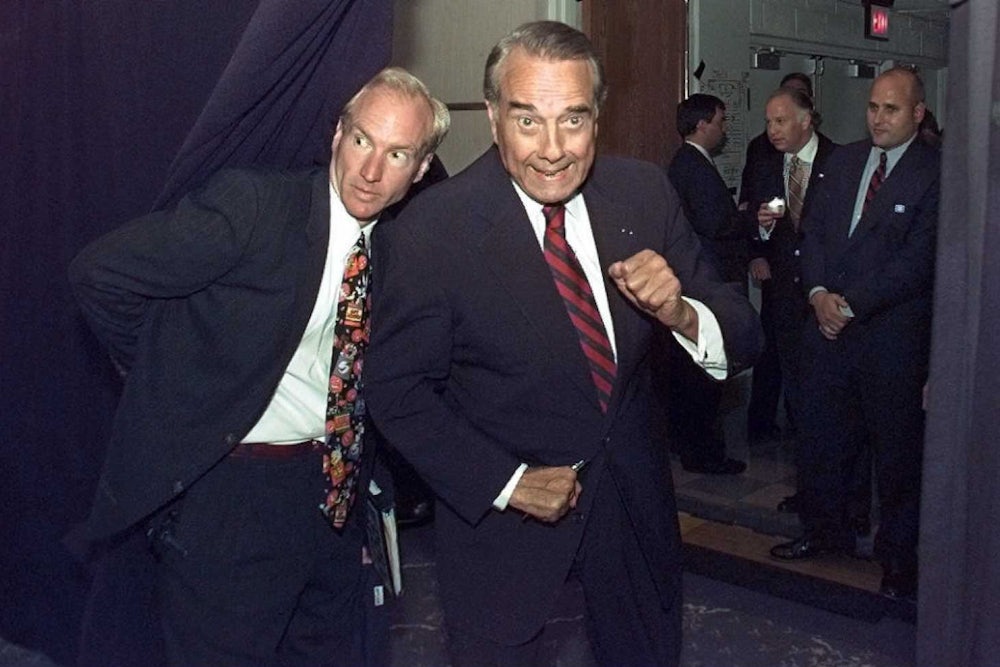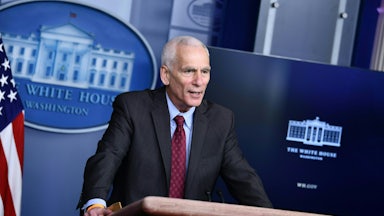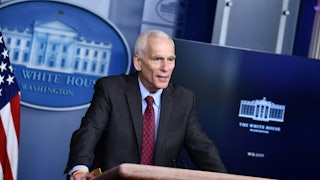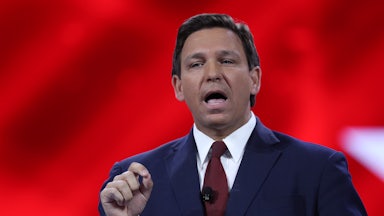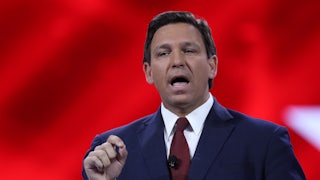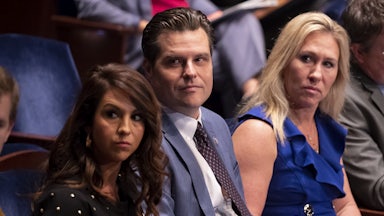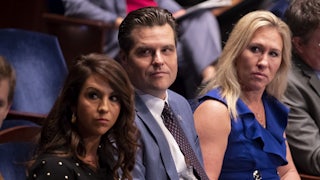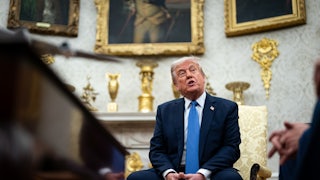The late Bob Dole, whose two major presidential races I chronicled in 1988 and 1996, remains a man of conflicting parts. I can see the pieces of his long career—the ambition, the suffering, the stoicism, the patriotism, and the partisanship—but they never cohere into a single inscription beneath a statue. Neither a political hero nor a rogue, neither a statesman nor a scalawag, Dole embodied the complexities of dealmaking on Capitol Hill. And in writing about him, I mourn both his loss at age 98 and the death of the political party that won his lifelong allegiance, Midwestern Main Street Republicanism.
In early July 1976, about six weeks before he was named Jerry Ford’s vice presidential running mate, Dole showed up late for a Capitol Hill hearing. His explanation for his tardiness remains an emblematic Bob Dole moment: “Sorry, I was at the White House helping Jerry pack.”
Those 10 words violated multiple political taboos. Then, as now, you don’t point out that the incumbent president of your own party is losing by double digits in the horse-race polls. With the vice presidency up for grabs (Nelson Rockefeller had already been booted from the 1976 ticket), a striving senator like Dole normally would never utter a sentence that might smack of disloyalty.
But Dole could never resist punctuating the pieties of politics, the way a mischievous boy loves setting off small firecrackers. Dole, for all his raging ambition, would rather have been funny than president. There have, of course, been other humorists in politics—especially Arizona Congressman Mo Udall, who ended up consistently losing to Jimmy Carter in the 1976 Democratic primaries. But legislators like Udall and, later, Alan Simpson were raconteurs and masters of the set-piece joke. Dole, in contrast, was the kid with the wisecrack that had been crafted on the spot.
No one on Capitol Hill was ever better at nonverbally signaling (usually with his hyperactive eyebrows) to reporters, “Just because I’m saying this doesn’t mean I believe it. And you all know it. But still, you will have to put this quote in your stories.” This was not some elaborate insider conspiracy but rather an acknowledgment that in the twentieth century, overheated political rhetoric on both sides was at times disconnected from reality.
Dole’s humor was often as bleak as a Kansas town that has been losing population since the nineteenth century. The saddest campaign I ever traveled with was Dole’s during the week after he lost the 1988 New Hampshire Republican primary (and, ultimately, the nomination) to George Bush. What I recall is Dole sitting mournfully in an aisle seat on his shabby campaign plane, occasionally lifting his head from the papers on the tray table to offer a mordant joke about his disjointed schedule: “Maybe we’ll just fly around until we see a crowd and land.”
In hindsight, 1988 should have been Dole’s year. For all Dole’s disdain for supply-side economics and its devoted practitioners, he was a better heir to Ronald Reagan than the patrician changeling who served as vice president for eight years. The Bush campaign that year was run by Lee Atwater, whose low-road tactics were a pointed contrast to the now-misty memories of Bush’s subsequent one-term presidency. Dole famously snapped at Bush on television as the New Hampshire results came in, “Stop lying about my record.” Dole had a point. The Bush campaign won the primary, in part, because of a cynical TV ad claiming that “Bob Dole … just won’t promise not to raise taxes. And you know what that means.”
(What it turned out to mean was that, as president, Bush did indeed raise taxes and violated his “read my lips” pledge, powering a 1992 primary challenge from Pat Buchanan.)
In 1995, as Dole was readying another presidential race, I asked him my version of the Roger Mudd “Why do you want to be president?” question, as part of an Esquire profile. Dole’s answer was unadorned with the focus-grouped buzzwords of campaign consultants. “I think I fit the job description,” he said with the tone of someone who had been browsing the newspaper classified sections. “People want someone who has been tested. I’m still close to people in my home state, my hometown … Conservative. Right-wing conservative. But, hopefully, sensitive to the needs of some people who are never going to make it.”
In many ways, the 1996 presidential race was a rigged game. Dole, at that point, was the oldest first-time presidential nominee in history running against Bill Clinton, the youngest president to seek a second term since Teddy Roosevelt. Adding to Dole’s frustration was the decision by his handlers to try to turn him into a generic Republic. As Nelson Warfield, his 1996 national press secretary, admitted in a New York Times op-ed, “Over and over again, in speech after speech, he told his campaign he was going to say what he wanted. We thought that was a problem. Looking back, I think it was a treasure.”
Much like a sports columnist who gravitates to the losing team’s clubhouse, I signed on for the final leg of the 1996 Dole campaign. The Dole press aides gave each traveling reporter a baseball cap (which I still have) with the logo, “96 Hours to a White House Beat.” What was bracing about those final hours—even as Dole shouted in vain, “Where’s the outrage?” about the Clinton fund-raising scandals—was that Dole was finally liberated to talk to the traveling reporters as he did on Capitol Hill. So there were long airborne press conferences, with his eyebrows punctuating his commentary, as Dole gamely played out the end of his 36-year political career in national office.
Not everything about that career was admirable. In 1974, Dole faced the toughest Senate reelection fight of his career against Bill Roy, a revered Kansas obstetrician who had served two terms in Congress. In a guttersnipe move for Kansas politics in that era, Dole railed against the handful of legal abortions to save the life of a mother that Roy had performed, during a career in which he delivered 5,000 babies. Calling Roy an “abortionist,” Dole roused enough social conservatives to eke out a 13,000-vote victory.
In many ways, the saddest act of Dole’s political career was the last one, as he (unlike every other living GOP presidential nominee) endorsed Trump for president and attended the 2016 GOP convention in Cleveland. Maybe this ill-considered decision was an old man’s final grasp for relevance, or maybe it reflected a stubborn, misplaced allegiance to the permanently changed Republican Party. At least in his final interview, in July, with Susan Page of USA Today, Dole admitted that Biden had won the 2020 election fairly and described himself as “sort of Trumped out.”
But the best measure of Dole’s political career is a question that Trump has made sadly relevant: Would you feel confident in American democracy if this person were the leader of the opposing political party? During the era when Bob Dole personified Republican leadership on Capitol Hill and the years in which he ran for president, America would have been in capable hands no matter which party ruled Washington. If only one could say that today.
